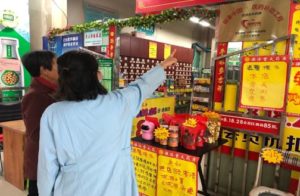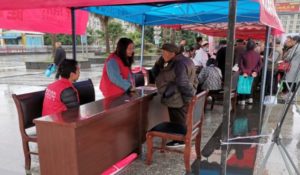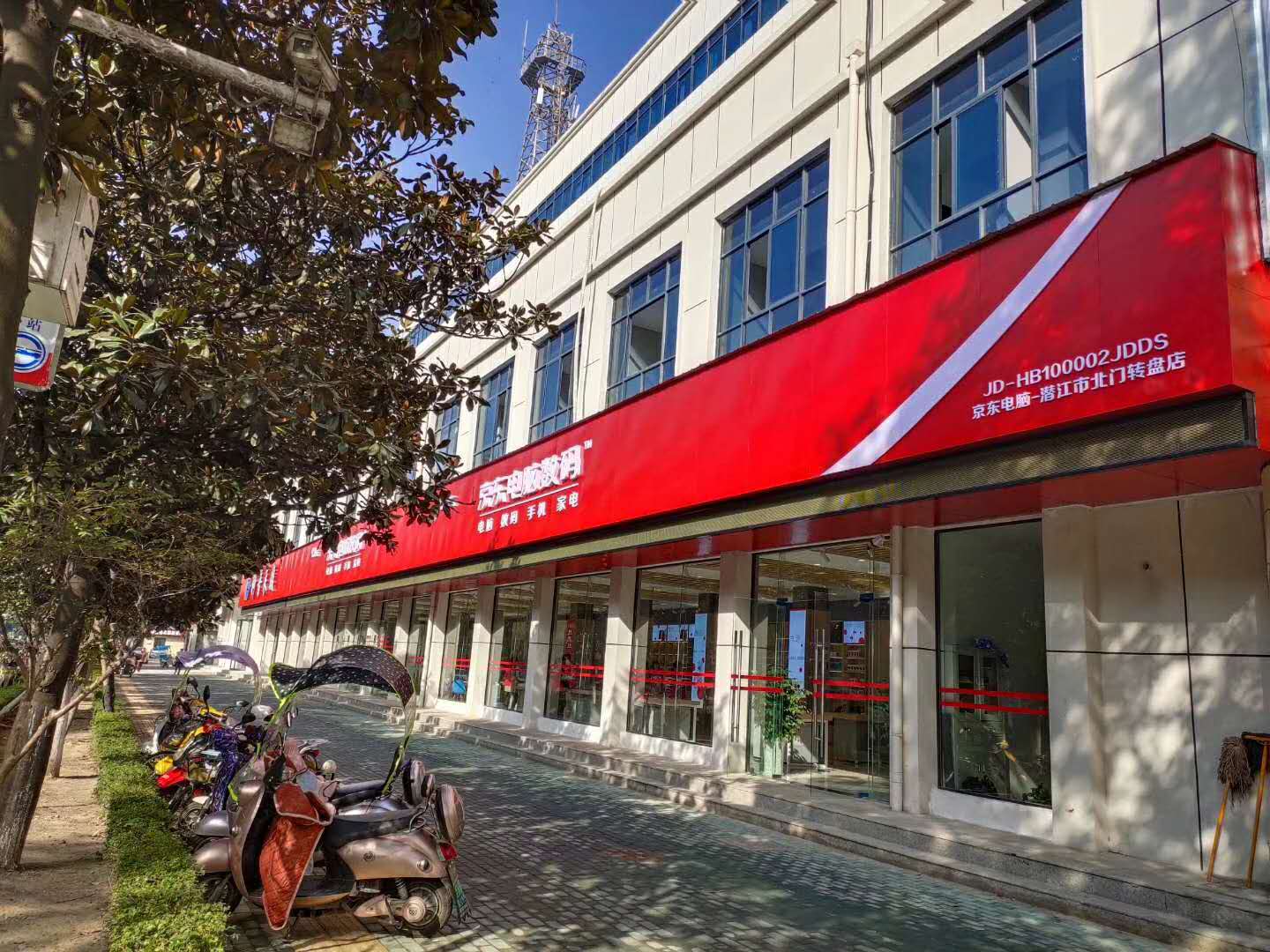by Ling Cao
- As sales volume declines for the computer and digital products, JD hopes an omnichannel operation can help provide more value to the industry as a whole, and attract more people to work in the industry.
- Leveraging omnichannel tactics, JD Computer and Digital experience stores helped brands and sellers during the pandemic, assisting in their digitalization and boosting sales.
- JD hopes to work with brands and sellers more deeply going forward.
In April this year, JD opened more than 90 offline experience stores across China by cooperating with offline retailers, despite the uncertainty of economic conditions under the impact of the pandemic. This bold move signaled a realization that an omnichannel (offline and online) approach will likely be the key to long-term success in a rapidly evolving industry. JD is uniquely poised to pursue this approach, thanks to its capabilities in omnichannel, supply chain, retail and technology, as well as trust among over 417 million customers.
Lipin Wang, head of JD’s Computer and Digital offline experience stores said, “In April, there was surging demand for purchasing computer and digital products due to many people working from home, and kids studying online. At the same time, the pandemic destabilized supply chain and logistics, as well as stable offline operations, for many companies. Brands gradually recognized that only a few players including JD could provide stable services.”

When demand went down
Industry data shows that since 2011 the volume of China’s computer and digital products has declined with an average annual rate of 2%. There are several reasons for this downward trend. For one, demand was largely satisfied before 2008, when there was a high growth period for computer and digital products. Second, computers have since been replaced by cellphones or tablets to some degree. As a leading player of the category, JD is consistently looking for ways to innovate and create value for the industry as a whole.
In August 2018, JD opened the first computer and digital products experience stores at a college. Two years later, there are over 700 such stores in China. By cooperating with JD, the store sellers can receive training courses on a variety of topics including inventory management, smart replenishment recommendations, omnichannel sales strategy, logistics support, guidance on store decoration, and innovative marketing, including livestreaming.
Among JD’s Computer and Digital offline experience stores, there is a wide variety of store owners, ranging from post 90s, to middle-class traditional backgrounds, to cellphone repairers and more.
With JD’s help, many of these sellers have come through COVID-19 unscathed. One example is Zhiling Dou, who used JD’s innovative marketing tool to accelerate her business. She owns a JD Computer and Digital experience store in Hunchun, Jilin province in northeast China. When traffic in offline stores was hugely impacted in the earlier stages of the pandemic, Dou started to do livestreaming on JD Live. As a result, sales reached RMB 3.6 million yuan in July, which is more than 7 times her previous average monthly sales.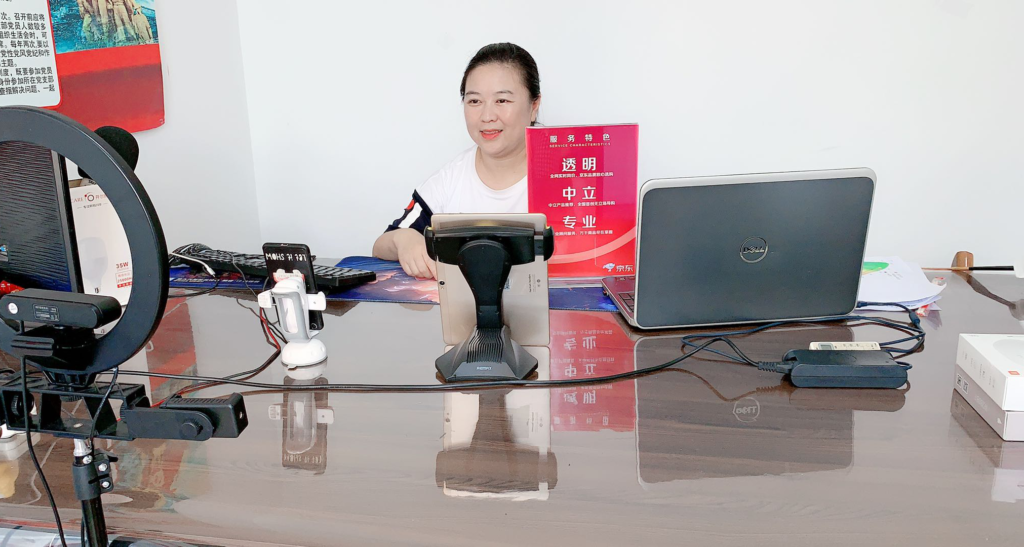
“During the toughest period, livestreaming offered a second chance for the store,” Dou said. “I now think online and offline strategies are equally important, and going forward I will operate both of the channels.”
“The biggest change after cooperating with JD is that I am delighted see repeat customers who come to my store often, whether they are buying a computer, a mouse, a pair of headsets or even non-relevant categories such as nuts,” one store owner said. “Better yet, now we can always meet their demand quickly because of JD’s comprehensive inventory and fast supply chain capability.”
JD’s inventory advantages
Previously, it was common for customers to only visit a store one time, as a computer could be used for several years, and the selection of accessories in one store might not be colorful enough. Now with JD’s help, stores can sell more categories besides computers and digital products, such as food, cosmetics and more. Additionally, JD’s smart store management solutions can help sellers increase their operation efficiency.
“JD’s massive product inventory ensures that one small store that is only dozens of square meters can be supported by tens of thousands of SKUs (stock keeping units) behind the scenes,” Wang said. “The categories that we can stock have been widely extended, equal to a shopping mall on some degree.”
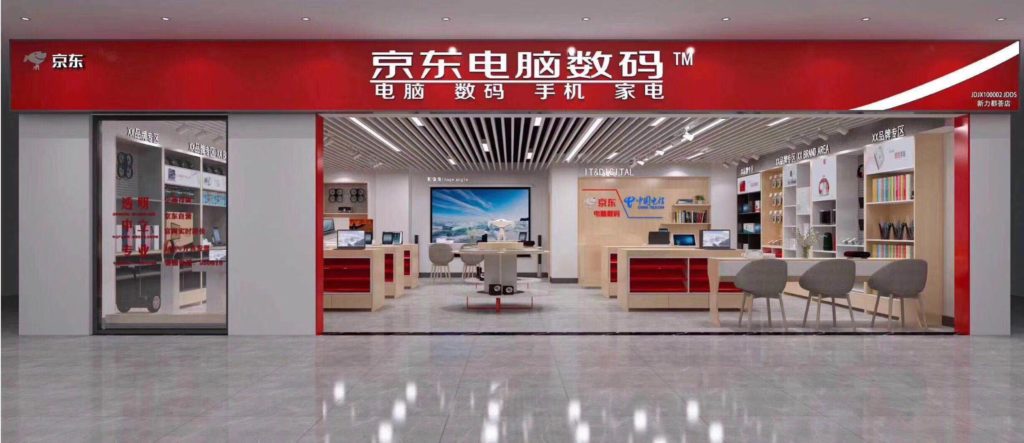
JD combines online and offline operations, and helps the stores go digital. When customers search for a laptop online, sometimes the customers want to test the product. On JD’s product pages, they can check the nearest offline experience store for its location, and “pre-order” the opportunity to experience the product offline. After testing it out in person, customers can either buy the product at the offline store or online at JD, at the same price and level of service. According to Wang, 60% of customers who have pre-ordered products to test in person ultimately buy the products. Additionally, JD can recommend popular products to the stores based on big data and LBS (Location Based Services).
Lower tier markets
Currently, most of JD Computer and Digital experience stores are located in lower tier markets. Many brands choose to expand their business in this market together with JD.
According to JD Data, in the first half of 2020, Honor laptop sales from JD Computer and Digital experience stores increased 200% YOY. JD and Honor have successfully cooperated on offline channels since August 2018, with JD setting specific experience sectors for Honor in its Computer and Digital experience stores, and tailored styles and products for different local markets. Leveraging JD’s omnichannel advantages, JD also promoted online and offline events on university campuses to target students, showcasing popular products including Honor MagicBook.
By cooperating with JD Daojia’s crowdsourced logistics resource Dada Now, the stores can also provide instant deliveries within a radius of three kilometers. Earlier this year, the stores conducted a speed test on the service, with one customer receiving a Lenovo notebook in just 11 minutes. Brands particularly welcome this commitment to speedy delivery when launching new products.
JD Computer and Digital experience stores have attracted a younger clientele that appreciates the opportunity to test products before buying, said Qingyuan Zhang, who owns a JD Computer and Digital experience store in Gongyi city, Henan province. “Many customers who come to my stores are from the younger generation,” said Zhang, who is also in his 20s. “They are loyal and trust products here.”
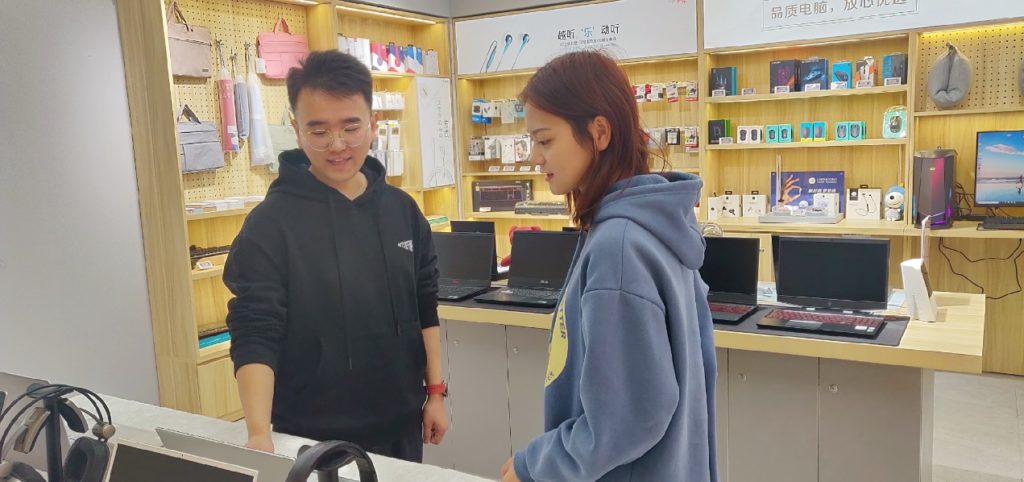
He added, “I may lack retail experience compared with people who have been involved in the industry for many years, but I have the spirit and energy to learn new things. That’s why I took a leap in choosing to cooperate with JD, after I did comprehensive research.”
Zhang said in that local market, there are many small stores with a lack of diverse products. He sees this as an opportunity for stores like his, who want to serve customers who have tailored demands. These customers can trust that JD’s services, logistics and post-sales will guarantee a good customer experience, he said.
Broader future
Wang added, “We hope our effort in expanding offline stores can attract more people to work in the industry. And we also hope that we can create a location that help brands, especially those newly born brands display their products to customers. On one hand, we can work with brands to increase the industry market share, and on the other hand, we can provide a better customer experience.”
As the chain’s business model is agile, it will narrow the need for middle players, which makes it more cost-effective than most offline business models, Wang said. Under these factors, he is confident that brands and retailers will cooperate with JD in this field more deeply.
(ling.cao@jd.com)



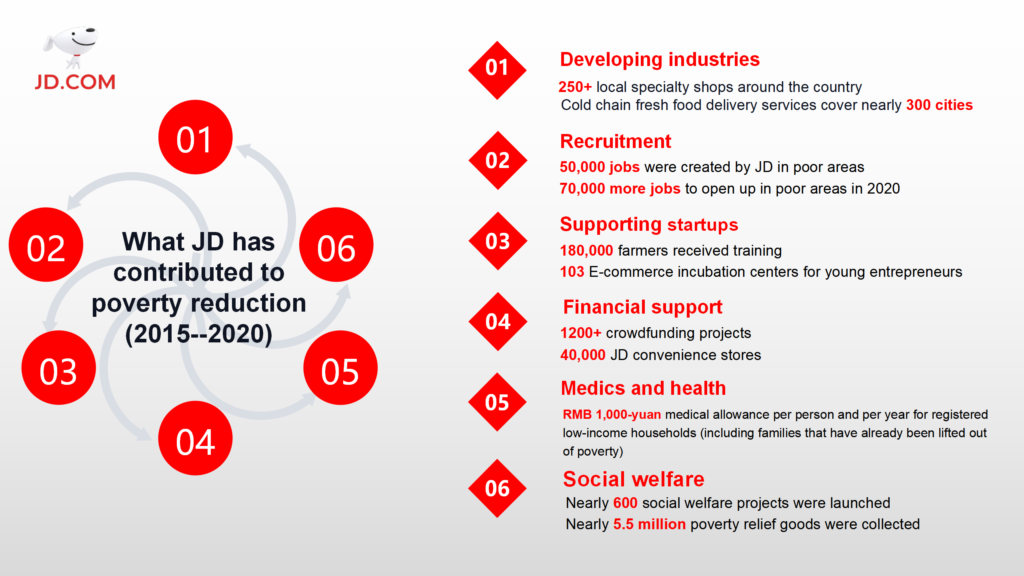
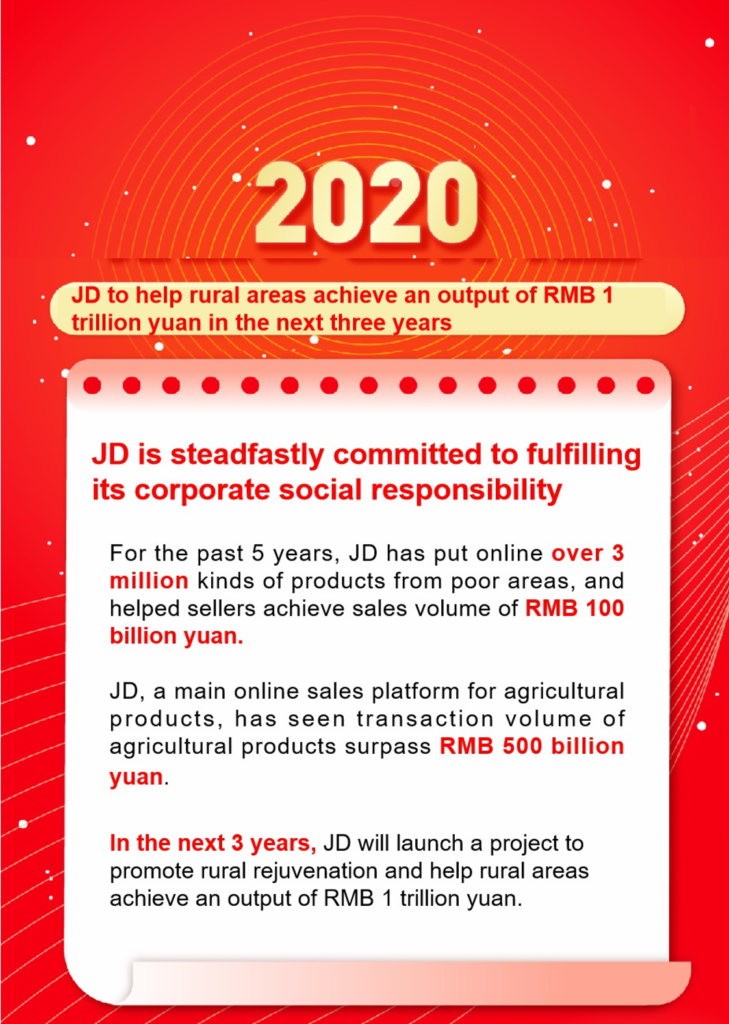

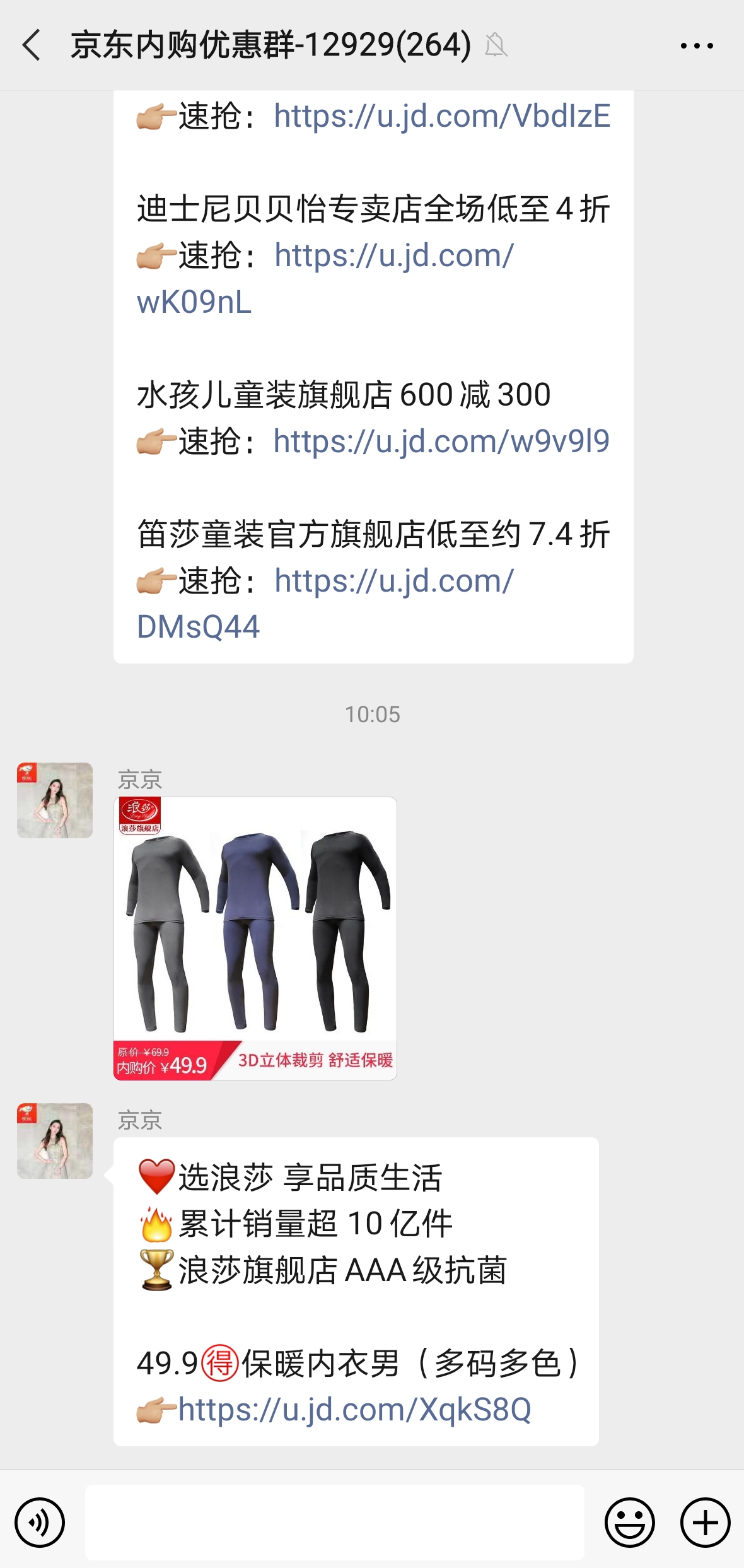

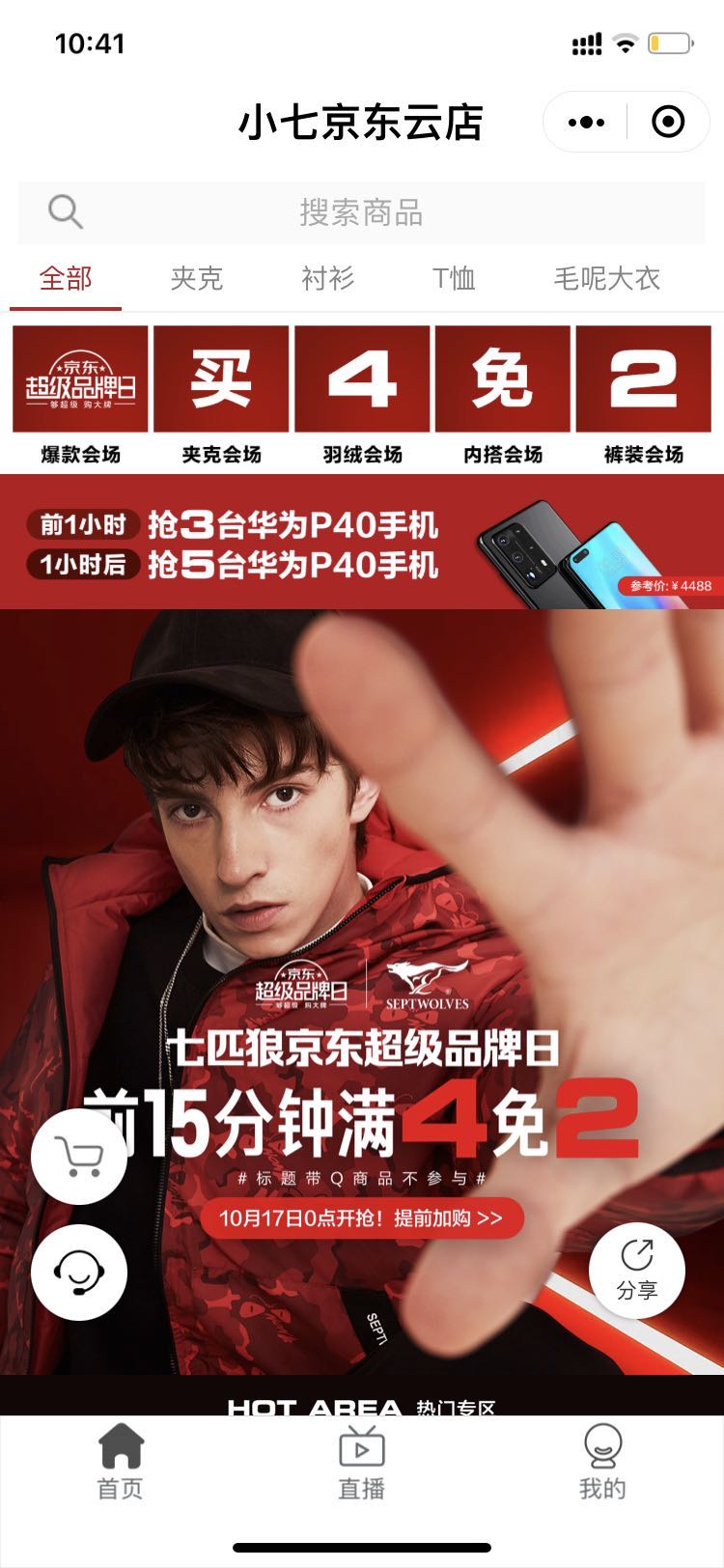 A cloud store on WeChat nini-program
A cloud store on WeChat nini-program




